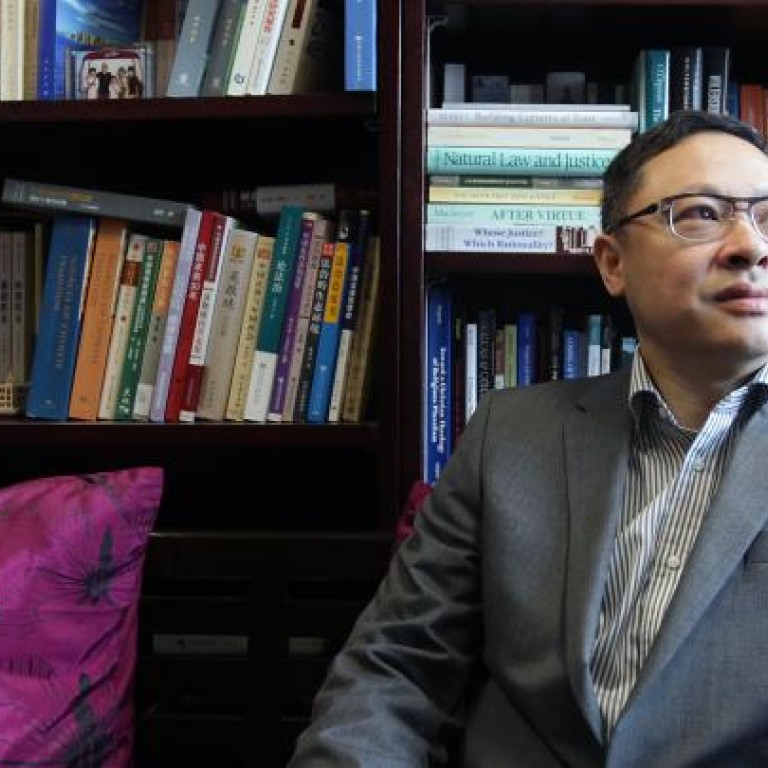
Occupy Central pioneer Dr Benny Tai Yiu-ting sounds a dire warning
Hongkongers may emigrate or protest violently if Beijing rejects universal suffrage, activist says
If Beijing denies Hong Kong genuine universal suffrage, some residents might emigrate and others turn to a violent struggle for democracy, the man behind the Occupy Central civil disobedience plan warned yesterday.
Dr Benny Tai Yiu-ting, a University of Hong Kong law professor, said: "We still hope that at the end we do not need to occupy Central. But if the movement is oppressed, or universal suffrage is denied, it may force some Hongkongers to turn to violent struggle or to emigrate."
His comments, which some activists support, was met with warnings about the risk to the city's economy. The business sector warned that some financial institutions were working on "contingency plans" to move offices out of Hong Kong.
Tai said the plan for a road blockade in Central next year would be only a final resort in pressing for democracy.
The goal was reform that would fulfil the world standard of universal suffrage but "does not [go against] the Basic Law", he said on a radio programme. Tai said it was too difficult to assess whether the recent remarks by Qiao Xiaoyang , chairman of the Law Committee under the National People's Congress, would drive more people to join the Occupy Central movement.
On Sunday, Qiao told a group of Beijing-loyalist lawmakers that Beijing would not accept a chief executive candidate who adopted a confrontational attitude towards the central government.
The Reverend Chu Yiu-ming, a core Occupy Central organiser, said Qiao's remark showed that Beijing's mindset was "going backwards".
Tony Tsoi Tung-ho, co-founder of the online House News portal, said: "Hongkongers have waited long enough for universal suffrage. I will join [the protest] because I can see no more reason to dodge [democracy]."
Hongkongers have waited long enough for universal suffrage. I will join [the protest] because I can see no more reason to dodge [democracy]
But lawmaker Andrew Leung Kwan-yuen, chairman of the Business and Professionals Alliance, said the planned protest would create an economic risk.
"I know that several multinational financial firms have prepared contingency plans," he said. "If the political risk is too big, they might move part of their offices out of Hong Kong."
Elsie Leung Oi-sie, vice-chairwoman of the Hong Kong Basic Law Committee, said it was "common sense" that the chief executive should love the country and the city.
"It is a 'must', and not a new criterion imposed by Beijing," she said.
Political scientist Ivan Choy Chi-keung said Qiao's remarks had narrowed the space for talks between pan-democrats and Beijing, making Tai's plan seem a more acceptable option to pro-democracy campaigners.
